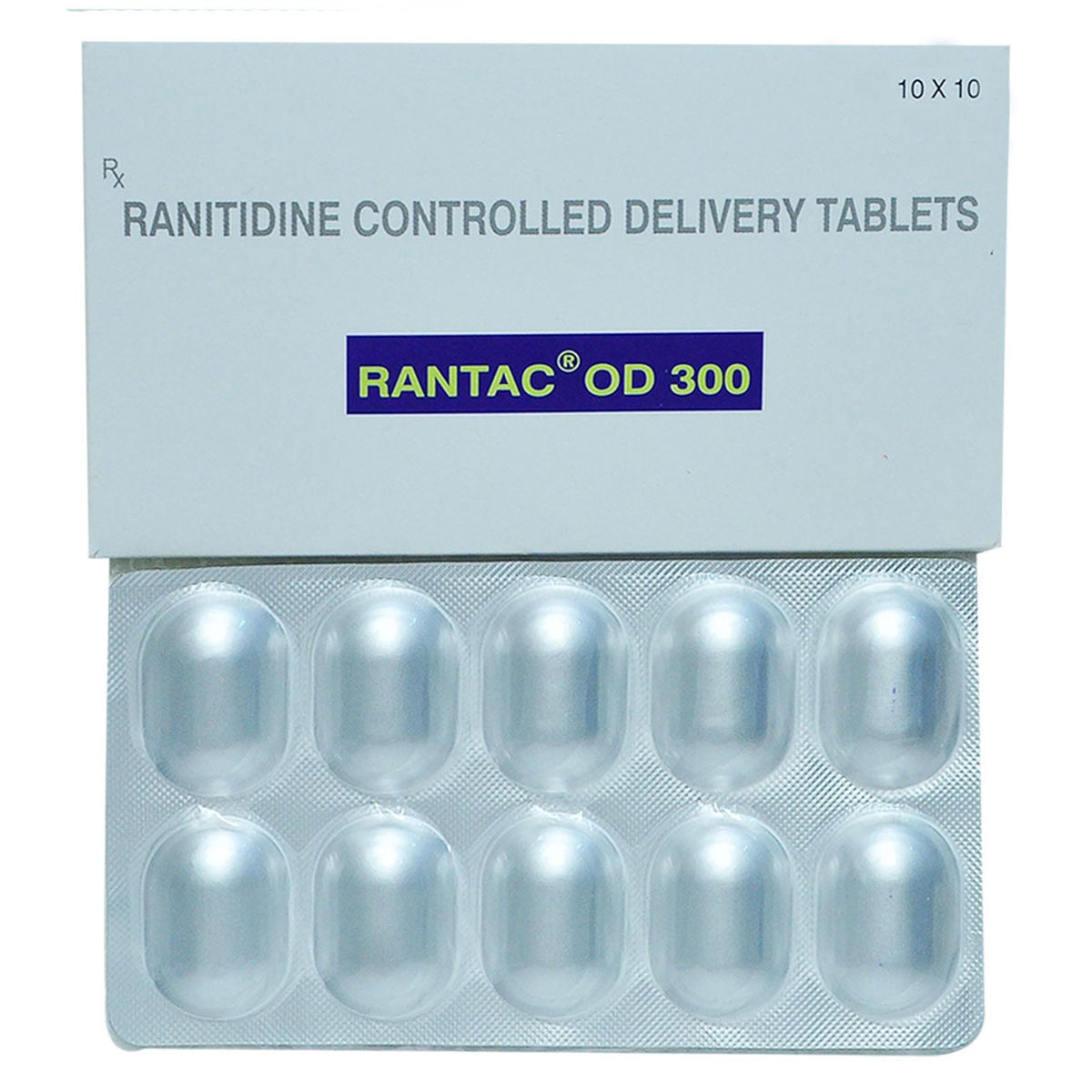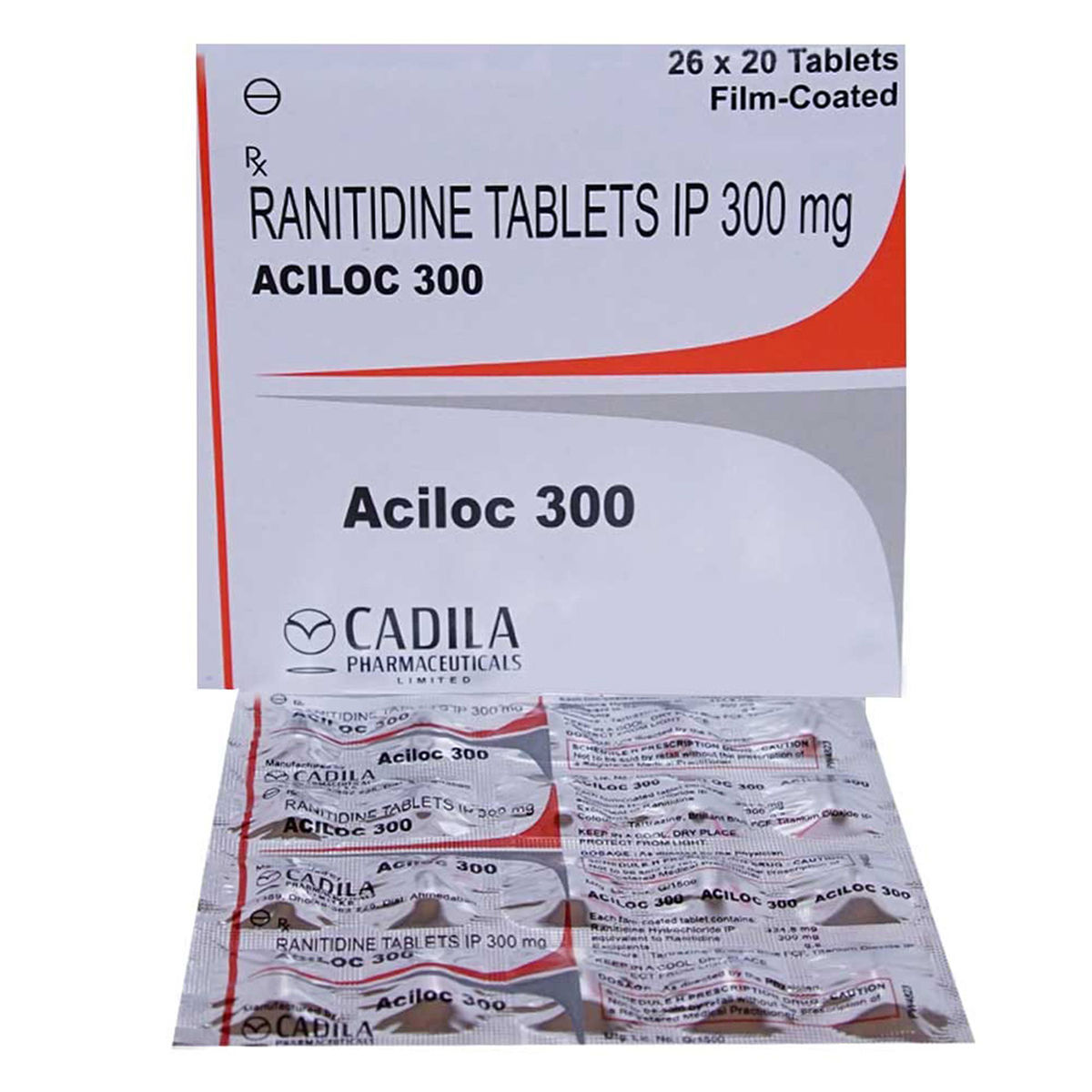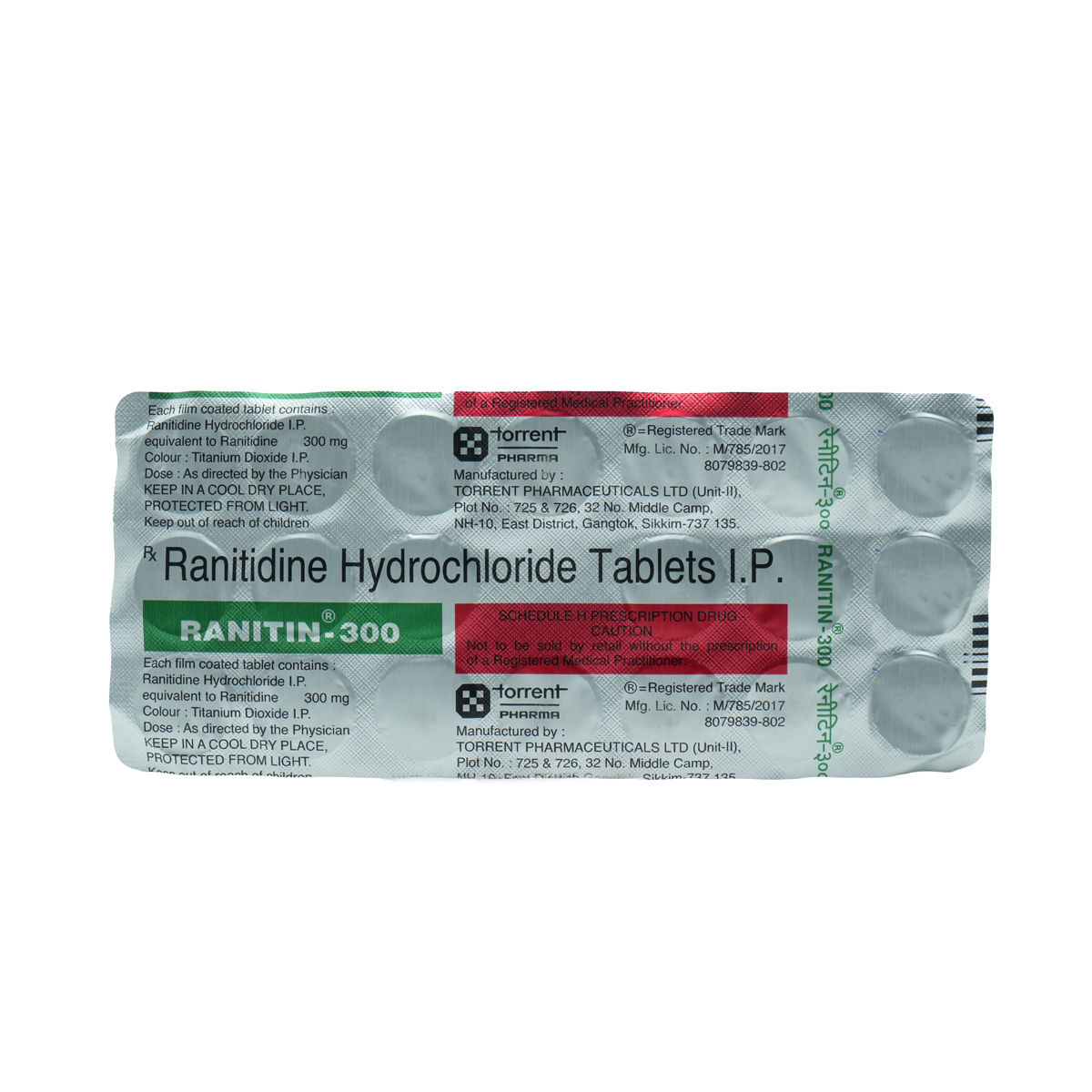Ortidin 300mg Tablet
₹10.98*
MRP ₹12.2
10% off
₹10.37*
MRP ₹12.2
15% CB
₹1.83 cashback(15%)
Free Delivery
With Circle membership
(Inclusive of all Taxes)
This offer price is valid on orders above ₹800. Apply coupon PHARMA10/PHARMA18 (excluding restricted items)
Know Your Delivery Time
Provide Delivery Location

Whats That

Secure Payment

India's Most Trusted Pharmacy

Genuine Products
Composition :
Manufacturer/Marketer :
Consume Type :
Return Policy :
About Ortidin 300mg Tablet
Ortidin 300mg Tablet is used to treat indigestion, heartburn and acid reflux. Ortidin 300mg Tablet is also used for gastro-oesophageal reflux disease (GORD) when you get acid reflux. Ortidin 300mg Tablet is also used to prevent and treat stomach ulcers. Often, Ortidin 300mg Tablet is taken for a rare condition caused by a pancreatic or intestine tumour called Zollinger-Ellison Syndrome.
Ortidin 300mg Tablet contains ranitidine, a histamine-2 (H2) receptor blocker that helps reduce stomach acid by blocking the actions of the H2 receptor. The H2 receptor lies in the parietal cells of the stomach wall. It is responsible for the release of gastric acid secretion - extra gastric acid secretion damages the tissues in the food pipe, stomach, and duodenum.
Take this medication exactly as prescribed by your doctor. It would help if you kept taking medicine for as long as your doctor recommends. If you stop early, your symptoms may come back, and your condition may worsen. Ortidin 300mg Tablet might have common side effects like headache, diarrhoea, constipation, and shortness of breath. These side effects are temporary and may be resolved after some time. However, if these side effects persist, contact your doctor.
It is recommended not to take Ortidin 300mg Tablet if you are allergic to any components present in Ortidin 300mg Tablet. If you are pregnant, planning to become pregnant, or are breastfeeding, you should not take this medication unless your doctor says it is necessary. Inform your doctor if you have stomach or intestinal cancer, liver problem, or will have an endoscopy in the future. Also, let your doctor know about your health condition and all the medicines you are taking before taking Ortidin 300mg Tablet to rule out any side effects.
Uses of Ortidin 300mg Tablet
Directions for Use
Medicinal Benefits
Ortidin 300mg Tablet helps in reducing the excess amount of stomach acid. In turn, it prevents the formation of an ulcer in the stomach (peptic ulcer), gastroesophageal reflux disease (GERD) with or without ulcer, and Zollinger-Ellison Syndrome, in which the stomach makes an exceptionally high amount of acid.
How Ortidin 300mg Tablet Works
Storage
Side Effects of Ortidin 300mg Tablet
Headache
Constipation
Diarrhoea
Stomach pain
What if I have taken an overdose of Ortidin 300mg Tablet
Drug Warnings
You should avoid taking Ortidin 300mg Tablet if you are allergic to Ortidin 300mg Tablet or H2 receptor blockers, have gastric cancer, or have liver disease. If you are a pregnant woman or nursing mother, do not consume Ortidin 300mg Tablet without first consulting your doctor. Ortidin 300mg Tablet may interact with a blood thinner (warfarin), antifungal (ketoconazole), or anti-HIV drug( atazanavir). Let your doctor know if you are taking these medicines. Intake of Ortidin 300mg Tablet may mask the symptom of gastric cancer, so if you have any severe stomach pain or gastric bleeding (blood in stool and mucous), immediately consult the doctor.
Drug-Drug Interactions
Drug-Food Interactions
Diet & Lifestyle Advise
Avoid acid or heartburn-triggering foods or drinks like onions, peppermint, chocolate, caffeinated beverages, citrus fruits or juices, tomatoes and high-fat and spicy foods.
Before going to sleep, raise your bedhead, so your head and chest are higher than your feet. Do not use piles of pillows; one raised block is fine. This will not allow the stomach acid to backflow through your food pipe.
Avoid taking alcohol and smoking cigarettes. Alcohol can raise the production of stomach acid leading to heartburn and acid reflux. On the other hand, nicotine smoking damages the valve (sphincter), preventing stomach acid backflow into the food pipe.
Include high fibre-containing foods, berries, cherries, leafy green veggies (kale, spinach) and black peppers in your meal.
Fermented dairy products like miso, sauerkraut, and kimchi contain probiotics which help prevent excess stomach acid production. Cranberry juice can be beneficial for peptic ulcers and H Pyroli infections.
Avoid regular sitting continuously, as it can increase stomach acid production. Take a break of 5 minutes in 1 hour by brisk walking or stretching.
Habit Forming
Therapeutic Class
Ortidin 300mg Tablet Substitute

Rantac 300 Tablet 30's
₹2.84per tabletRantac OD 300 Tablet 10's
₹7.11per tabletAciloc 300 Tablet 20's
₹2.70per tabletRanitin-300 Tablet 20's
by AYUR
₹2.27per tabletHistac 300 Tablet 20's
₹1.89per tablet
Product Substitutes
Alcohol
Caution
Drinking alcohol with Ortidin 300mg Tablet may cause dehydration and elevate the level of stomach acid, thereby decreasing its efficacy. So try to avoid consuming alcohol.
Pregnancy
Safe if prescribed
Ortidin 300mg Tablet should be used in pregnant women only if clinically needed, and the benefits outweigh the risks.
Breast Feeding
Safe if prescribed
Ortidin 300mg Tablet should be used in nursing women only if clinically needed, and the benefits outweigh the risks.
Driving
Caution
Ortidin 300mg Tablet has no or negligible influence on the ability to drive and use machines. In some cases, Ortidin 300mg Tablet may cause dizziness and sleep. If you observe these symptoms, do not drive or operate machinery until you feel better.
Liver
Caution
If you have or had a history or evidence of any liver-related diseases, please consult the doctor before taking medicine.
Kidney
Caution
If you have or had a history or evidence of any kidney-related diseases, please consult the doctor before taking medicine.
Children
Safe if prescribed
The dose needs to be adjusted based on your child’s weight.
FAQs
Country of origin
Manufacturer/Marketer address
Disclaimer
Author Details
We provide you with authentic, trustworthy and relevant information


















